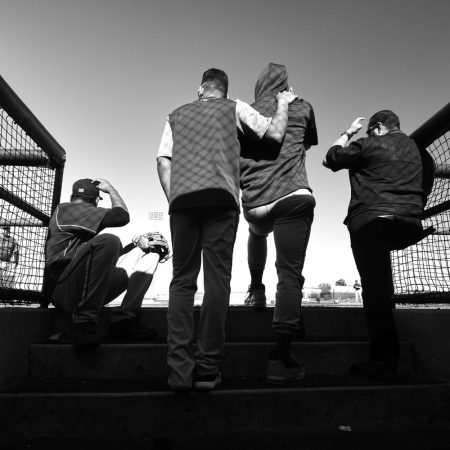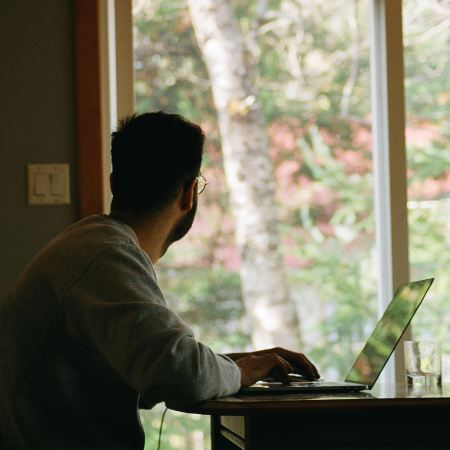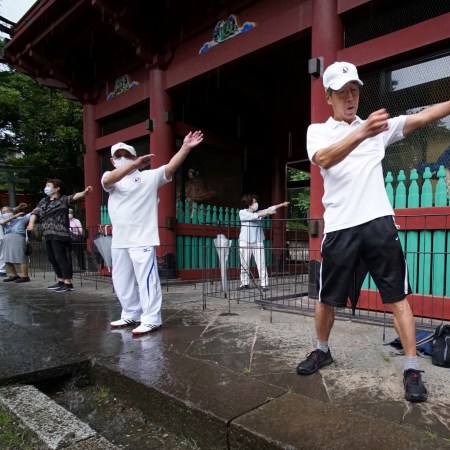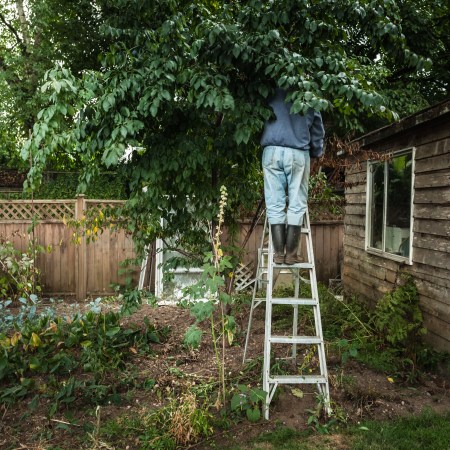It is impossible to fully grasp the toll the past few weeks (and quite frankly, history) have had on Black Americans. While you might imagine yourself capable of great empathy, unless you are Black, you will never be able to feel or comprehend the extent to which the senseless killings of Ahmaud Arbery, Breonna Taylor, George Floyd and countless others have impacted the Black community. You do not have to protest in the midst of a pandemic that has been proven to disproportionately impact Black people; you do not have to experience the trauma of a timeline flooded with insensitive and irresponsible videos of Black people being brutalized and killed; you do not have to indulge white and non-Black acquaintances burdening you with what they believe is your responsibility to educate them simply because you are Black.
Non-Black individuals can, and rightfully should, feel immense sadness, anger and outrage (and productively channel those feelings, whether it be through protesting or donations), but in most cases, those emotions will not be comparable to the experience of those who spend their lives convincing others of their humanity and right to live.
Accordingly, Black mental health matters. In a community where discussion of mental health is already largely taboo and stigmatized, it is important to alert those most in need of the resources available to them, especially in a time when they are needed most. Often, the task of seeking out mental-health care for those who are Black is further complicated by professionals ill-equipped to deal with their unique and unfortunate burdens and traumas. In turn, the Black community is likely to face discrimination at the hands of said professionals, with their concerns often downplayed or misunderstood. Recognizing the increasing need for mental-health resources by Black people for Black people, there are now a multitude of organizations created specifically for addressing mental health in the Black community and other communities of color.
Below you’ll find 10 of these organizations that offer their services virtually (and often communally) in order to help the Black community through this increasingly difficult time. And because many of them are nonprofits or depend on donations to survive, they also represent great outlets for anyone looking to donate some money to a vital but oft-overlooked beneficiary.
Healhaus
This inclusive space in Brooklyn is currently offering online workshops and livestreams (many of them free) in lieu of their regular in-person sessions. Included among their recent workshops have been a healing cypher for men of color as a way for BIPOC to unpack and work through their emotions as a community in a safe space, as well as an upcoming “Breathwork for Trauma” workshop.
Black Emotional and Mental Health Collective (BEAM)
BEAM offers a range of easily downloadable tool kits and resources on their site, including journal prompts for emotional awareness as well as graphics and worksheets for coping strategies. The collective is also holding “Black centered healing and support virtual spaces” that often include reiki healing and meditation. Registration for events are available here.
The Nap Ministry
Founded by performance artist Tricia Hersey, The Nap Ministry uses rest as a means of resistance and utilizes sleep as a tool for combating white supremacy. Typically the organization will host immersive workshops and performance pieces, but now have largely taken to Instagram to share posts about the healing power of naps for the Black community as well as what various means of rest can look like.
Dive in Well
What originally began as “Diversity in Wellness” dinners amongst wellness leaders and influencers in L.A. and New York has now turned into Dive in Well, an organization that hosts virtual classes and conversations regarding diversity and inclusivity in the wellness community. The organization hosts donation-based sessions for breathwork, energy work, meditation and more, with the majority of funds going directly to their practitioners.
Inclusive Therapists
Much like the name indicates, Inclusive Therapists provides a search database for those seeking inclusive therapists or therapists best suited to meet their specific needs. As their site states, “Inclusive Therapists offers a safer, simpler way to find a culturally responsive, social justice-oriented therapist.”
Ethel’s Club
This digital membership club exclusively for people of color offers book clubs, group workouts, wellness salons, guided meditations, creative workshops, exclusive artist Q&As, and DJ sets and listening sessions for just $17 a month. For those who are unable to afford a membership, the club has been offering free healing and grieving group sessions for the Black community through their Instagram.
Black Mental Wellness
Black Mental Wellness aims to provide access to information and resources about mental health from a Black perspective in an effort to decrease stigma in the Black community surrounding mental health. The site provides a wealth of resources including fact sheets for mental-health disorders and other informational topics surrounding the subject. Their site also features recommendations for mental-health apps, podcasts and videos, as well as other resources.
The Loveland Foundation
The Loveland Foundation was born out of founder Rachel Cargle’s 2018 birthday fundraiser, Therapy for Black Women and Girls, in which over $250,000 was raised. Now the foundation works to continuously expand that initiative through fellowships, listening tours and residency programs. Through their Instagram you’ll find self-care tips for activists as well as Instagram Lives for meditation and talks about grief, among other topics.
Black Female Therapists
The process of finding a therapist that’s the perfect fit is a difficult task, especially for Black and brown people, and especially for Black and brown women. Black Female Therapists works to make this process seamless by using their platform to promote Black female therapists as a means to in turn promote Black mental health. They also feature Instagram Lives with the therapists and professionals a part of their network to hold discussions on topics like depression and anxiety.
Black Men Heal
This pro-bono therapy service provides therapy to men of color by providers of color. It is already difficult enough for men to seek out therapy due to ideals surrounding gender norms; couple that with the stigmatization of mental health in the Black community, and Black men are among the populations least likely to seek help. The organization currently host King’s Corner: A Virtual Safe Space Meetup for Men through Zoom, to discuss the mental health effects of white supremacy and police brutality, as well as address other mental-health concerns in the Black community.
This article was featured in the InsideHook newsletter. Sign up now.






















